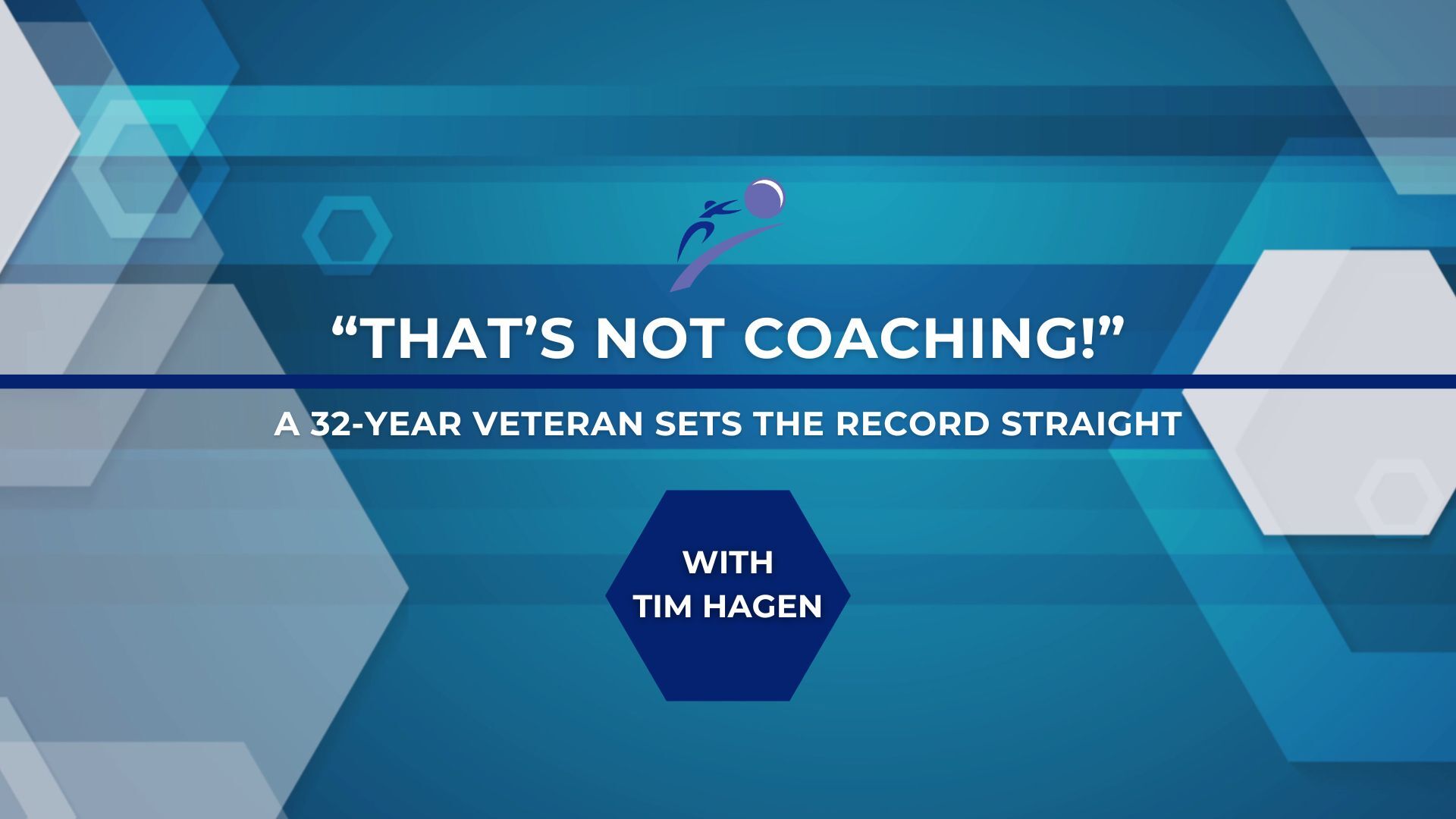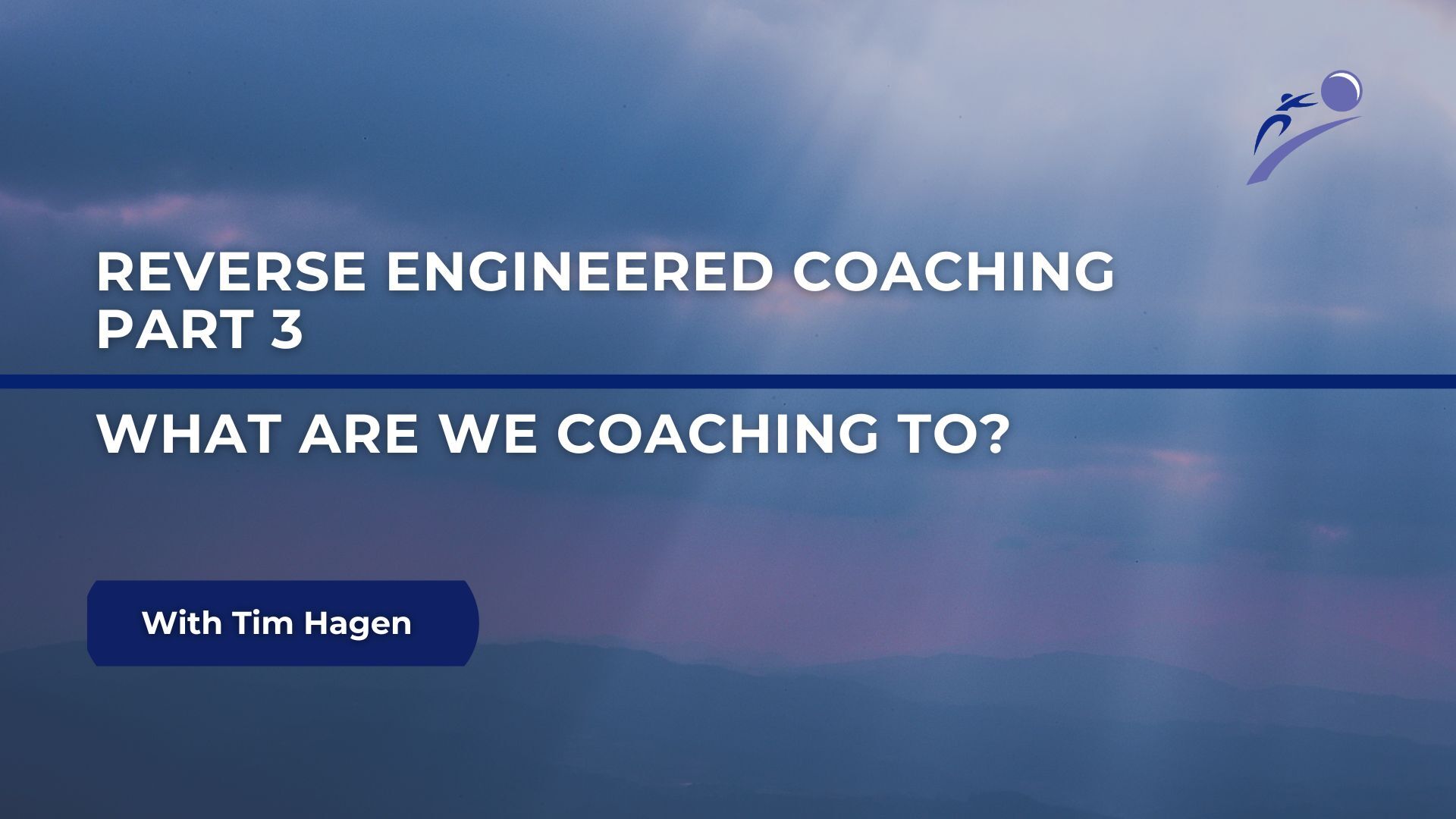Combine Feedback with Coaching
I just led a session with one of our clients, and when I think about leadership, we tend to compartmentalize things. Like feedback, mentorship, coaching: so often we put them in there and
I had 4-5 questions for these very experienced leaders in these sessions. And they all shared the same thing: "I'm giving feedback and I'm getting so much resistance."
I'm hearing that more than ever, even more than just five years ago. Then we start to label. Well, today's employees are so different. Probably are. Feedback and coaching can serve each other well.
Here's an example.
If I give someone this kind of feedback, "I really need you to raise your performance related to customers and engagement. Ask more questions and smile more."
There's the feedback. Now, you can couple it with follow-up questions. Such as: "Now, hearing that, what are you going to do to successfully put 2 things in action, and what can I do to assist you?"
Which of the two approaches would give more merit or more impact: the feedback alone, or the feedback + coaching questions after it? Definitely the second option.
I was just talking to an L&D director client. They said, "We're not ready for coaching because we have a mentoring program we have in place." I love mentoring programs. Yet mentoring is focused around guiding and advising. Are we to say that a coach shouldn't be mentoring? Or that a coach couldn't be utilizing mentoring skills? Of course they could.
Here's what I would do. I would interview the leader of that department to find out what it's like to work in that department. There's the mentoring.
When you hear the questions, "What's your comfort level here? What could I do to make you more comfortable?" There's the coaching.
We have to quit compartmentalizing things, from a learning & development standpoint and also from a leadership standpoint. How do we go about intertwining and integrating these tactics?
Here's another example. I report to the president of a publicly traded company and he's by far the greatest strategist I've ever met. Everything to him is about strategy; he's so good at it. He'll deliver the strategy and talk about its merits constantly. I approached him after one of his presentations and said, "I don't say this to counter what you did. I want you to just think about this question. How do you know people have embraced your strategy?"
He tilted his head and said, "Well, it's the strategy."
"Yet, would you agree that some agree with your strategy wholeheartedly, others may disagree, and others are somewhere in the middle?"
He was stunned by that question.
"How do you make sure that they are embracing this?" He admitted he'd never considered that.
The reason I asked this was because I knew some of his direct reports and leaders disagreed with the strategy. In one of our group sessions, someone even said they didn't even have a corporate strategy. Another employee piped up and said yes they did, it's on the company website. Isn't that interesting? How things get interpreted differently?
I suggested to the president after his next strategy session to ask his team this question:
"When you hear this strategy, what are you going to do to successfully implement it in your business area?"
He did. And then his leaders struggled to answer. His jaw hit the ground. He looked at me after and said, "I'm stunned."
He was assuming they were putting things into action because the strategy was so well thought out. And it was. But to execute strategy, you have to have the knowledge, skills and behavioral attributes such as confidence and conviction.
I asked the president what was his confidence in his leaders coaching to that? He said not much at that point.
I bring up these examples to show that we can't continue to compartmentalize leadership and coaching. We have to find creative ways to integrate some of these leadership and learning strategies.
Join the Workplace Coaching Times: a free digital publication dedicated to mentoring, coaching and leadership development. We are a community of leaders, manager and coaches transforming workplace challenges into coaching victories-- one conversation at a time.





